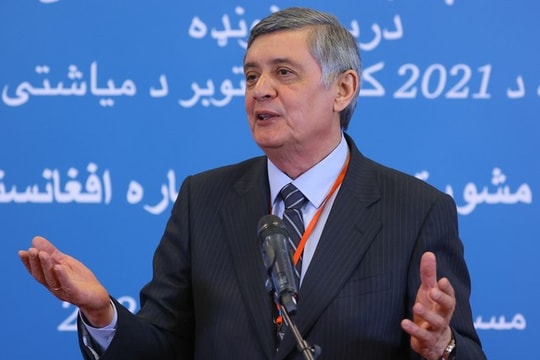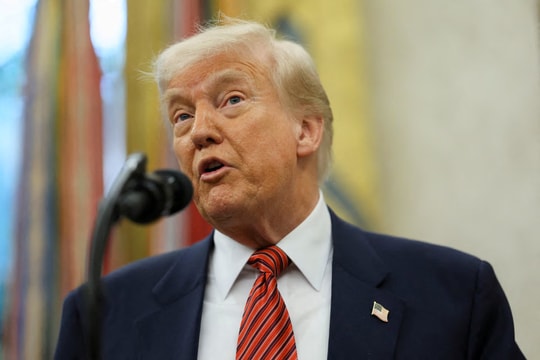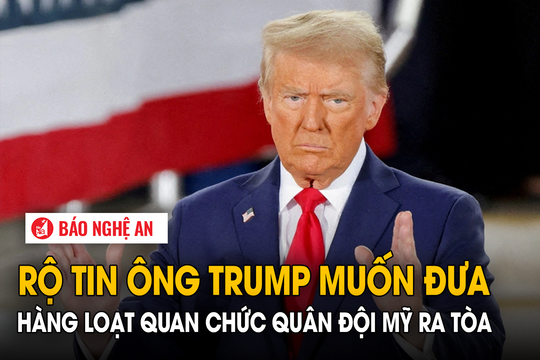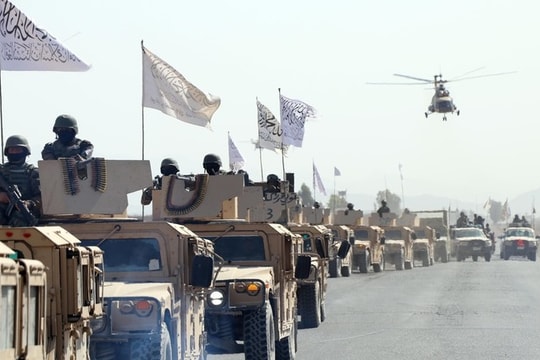Historic US-Taliban deal: Just for Trump to 'score points'?
(Baonghean) - The "historic agreement" just signed by the US and the Taliban brings political victory to President Donald Trump and the force that Washington considers a "dangerous organization", but for the peaceful future of Afghanistan, this agreement is just the beginning and there is still a long and difficult road ahead.
"Ticket" for US withdrawal
February 29 marked a major turning point in the US war in Afghanistan when the US and the Taliban signed an agreement paving the way for a new future in Afghanistan. The four-page agreement outlined many terms agreed upon by both sides, including two notable points. One is that the US will withdraw all troops in Afghanistan within 14 months if the Taliban guarantees that it will not allow militant groups like al-Qaeda to operate in Afghanistan and threaten the security of the US and its allies. The other is that the agreement will lay the foundation for negotiations between the Taliban and the Afghan government - known as the intra-Afghan negotiations - to discuss ways to cease hostilities and share power. The negotiations are expected to take place from March 10.
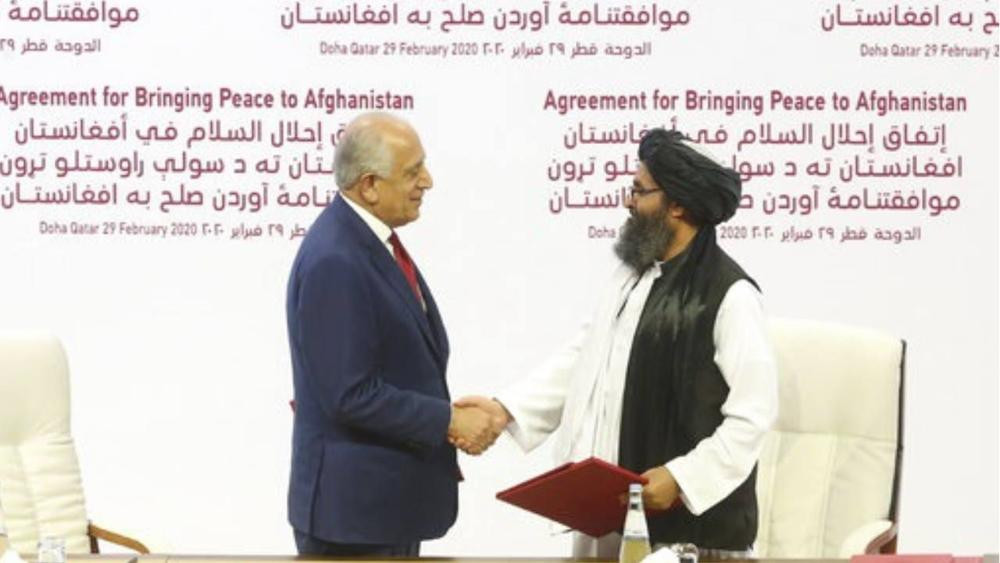 |
| Head of the US delegation Zalmay Khalilzad (left) and Mullah Abdul Ghani Baradar, a Taliban leader, at the agreement signing ceremony in Doha, Qatar on February 29. Photo: AP |
Looking back at the extremely complicated 18-year war with deep hatred between the US and the Taliban, no one thought that the two sides could sit together at the negotiating table and sign an agreement. Therefore, the recent agreement is considered "historic" as the US officials and Western press called it. Indeed, for the Washington administration and President Donald Trump personally, the recent agreement signed with the Taliban brought an important political victory.
The agreement was signed at the time when President Trump was launching his re-election campaign with the goal of staying in the White House for another four years. With this agreement, Mr. Trump has fulfilled his campaign promise to withdraw the Americans from the nearly 18-year war in Afghanistan that killed nearly 2,400 American soldiers and cost nearly $1,000 billion. If everything goes smoothly and the agreement is complied with by all parties, Mr. Trump will score points in the eyes of voters for pulling the United States out of the "quagmire" of a costly war.
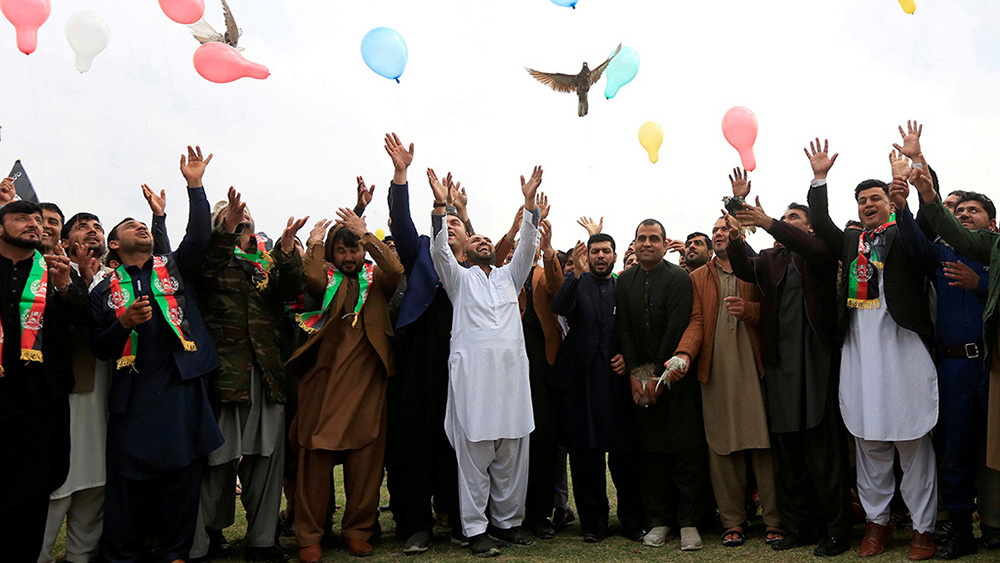 |
| Afghan people in Jalalabad celebrate the agreement signed by the US and the Taliban. Photo: Reuters |
The deal the Trump administration signed with the Taliban is nothing more than a “ticket out of Afghanistan” for the US military.
However, considering the 18-year-long US war in Afghanistan, many observers believe that the agreement that the Trump administration signed with the Taliban is nothing more than a “ticket out of Afghanistan” for the US military. It is a “quiet end” to a conflict that began with massive campaigns and grandiose declarations.
The goal of the US and its allies in 2001 was to drive the Taliban and Al-Qaeda out of Afghanistan, and then put the opposition in power, with the US military presence there in the name of ensuring security for Afghanistan. However, after 18 years, the US was finally forced to accept the presence of the Taliban in Afghan political life. An ending that many people consider “strange”.
On the other side, the Taliban has clearly won a major victory, both with the Americans and internationally. The US sitting down to negotiate and signing an agreement with this force is clearly a platform for the Taliban to gain the support of the international community and gain legitimacy. In other words, the Taliban has “kicked out the Americans” although not with a true military victory and returned to the political arena in a dignified manner.
For a long time, this force has not recognized the legitimacy of the current Afghan government, accusing Kabul of being a "puppet of the US and the West". Now that it has legitimacy, the Taliban will have more options and a voice when participating in negotiations on the international arena and moving forward to gain a position in the effort to compete for power with the Kabul government.
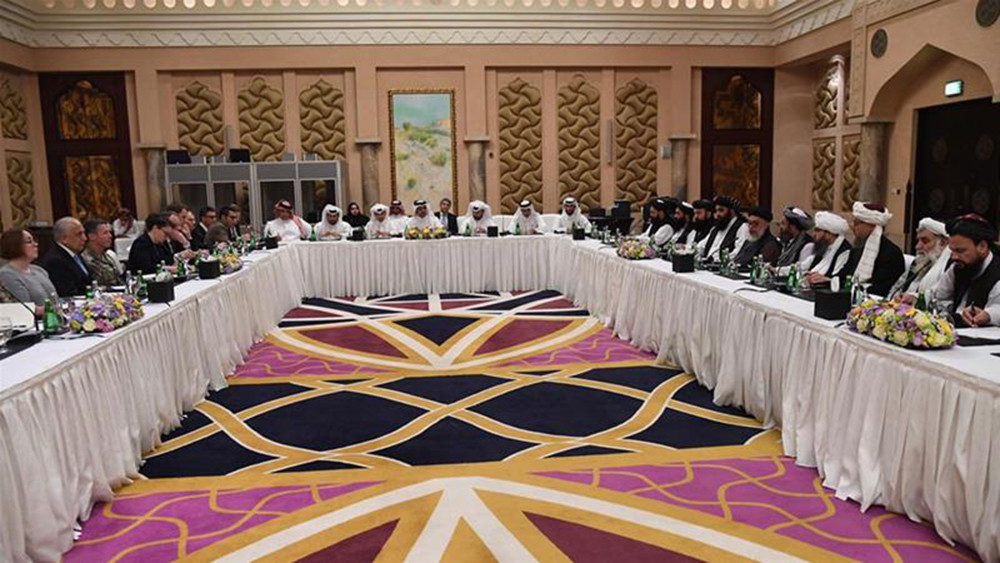 |
| A negotiation between the US and the Taliban in Doha, Qatar. Photo: Al Jazeera |
The long road to peace…
The recent US-Taliban agreement with the US withdrawal from Afghanistan does not mean that peace will return to this land. In fact, the agreement is only the first step, opening up opportunities for peace to blossom. What is important is how the internal Afghan negotiations will take place, and what role the Taliban will return to in the socio-political life of this South Asian country.
In other words, whether the recent agreement is successful or not depends on the Taliban's actions. US President Donald Trump stated that "Only when the Taliban complies with the agreement's commitments will the US withdraw all troops home. According to the agreement, the US will withdraw part of the total 12,000 troops in Afghanistan to 8,600 soldiers within a few weeks after signing the agreement. The plan to withdraw these troops will depend on the political process in Afghanistan, similar to the way the US withdrew troops from Syria last year but on a larger scale.
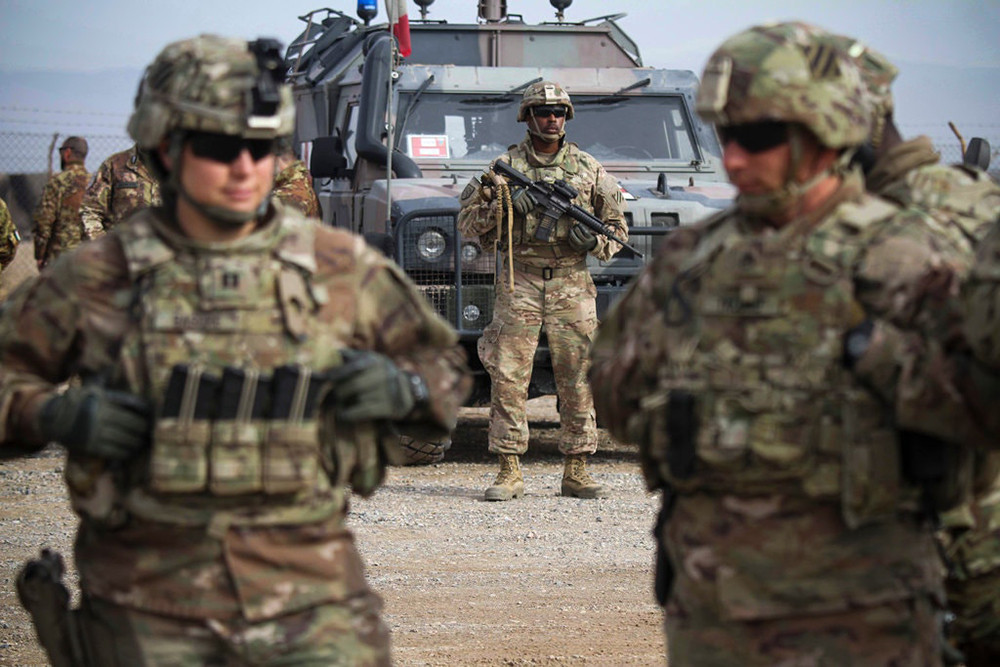 |
| US soldiers in Afghanistan. Photo: EPA |
If the Taliban attacks US forces in Afghanistan or if terrorist groups resume attacks, the deal will be considered a failure. Some critics say the Taliban is a weak organization, with unclear organizational structure and power distribution. There is no guarantee that the agreement will be fully complied with by all Taliban officials.
The US-Taliban deal does not include the Afghan government, while it does address the country's future.
In addition, the role of the current Kabul government must also be mentioned. The recent agreement between the US and the Taliban did not include the Afghan government while it discussed the future of this country. The "left out" mentality may also affect the goodwill of the Kabul government in the upcoming internal negotiations with the Taliban. Not to mention that Kabul is facing many challenges. Political instability surrounding the controversial victory of incumbent President Ashraf Ghani over his opponent Abdullah Abdullah remains a "hot" topic in the country's politics.
Furthermore, the rampant corruption in Afghanistan that shows no signs of improvement also makes the agenda difficult. Once the US withdraws its troops and aid, Afghanistan will find it difficult to "manage" the process of rebuilding the country. And thus, the possibility of the Taliban returning to power with harsh views will also be a nightmare for the Afghan people.
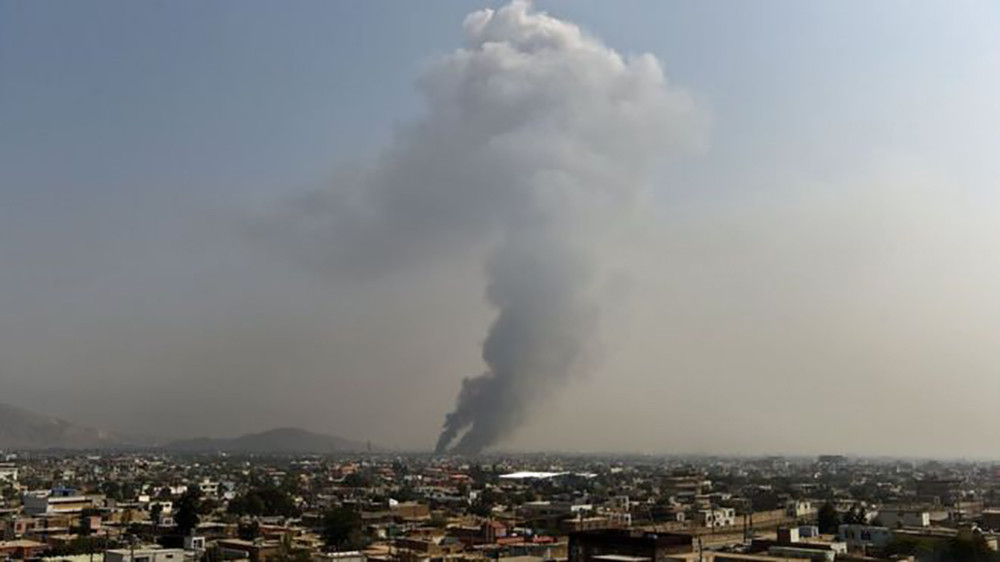 |
| The Afghan conflict has lasted nearly two decades, with Kabul the capital city of Kabul also the site of frequent attacks. Photo: Getty |
With all these possibilities, it can be said that the recent agreement between the US and the Taliban is a remarkable milestone, a necessary but not sufficient condition to bring peace to Afghanistan. The road to peace for this South Asian country still has many challenges that require all parties to maintain trust and close cooperation.

